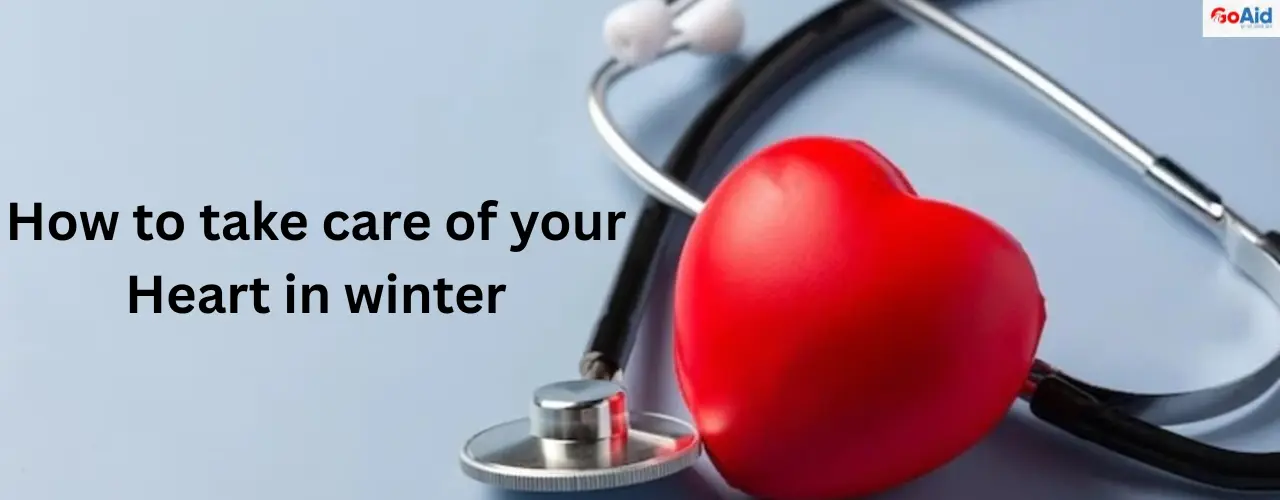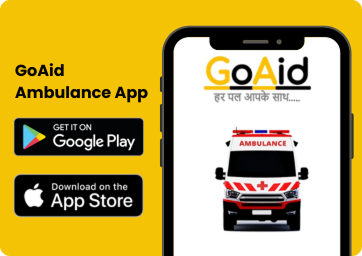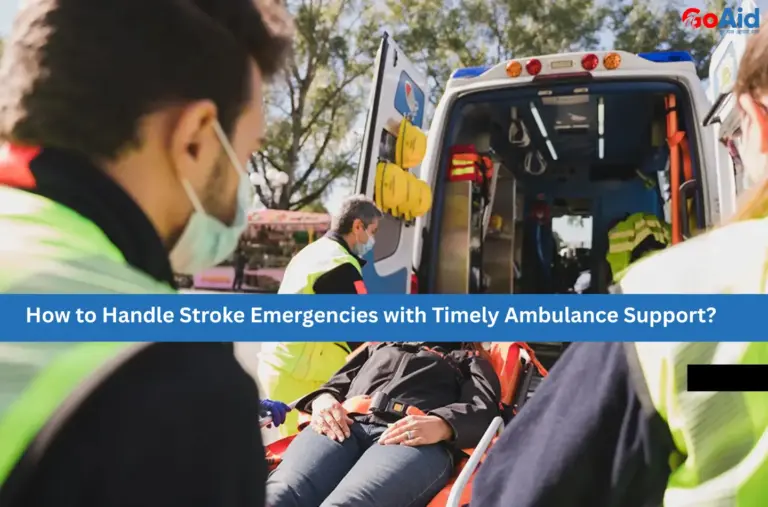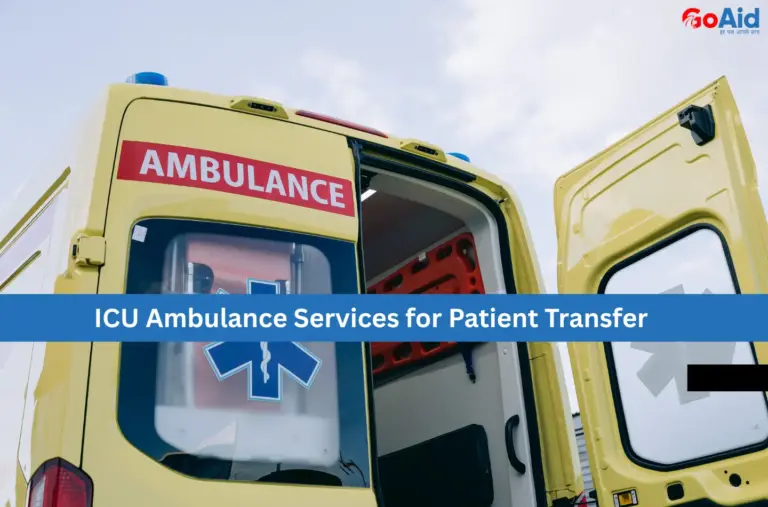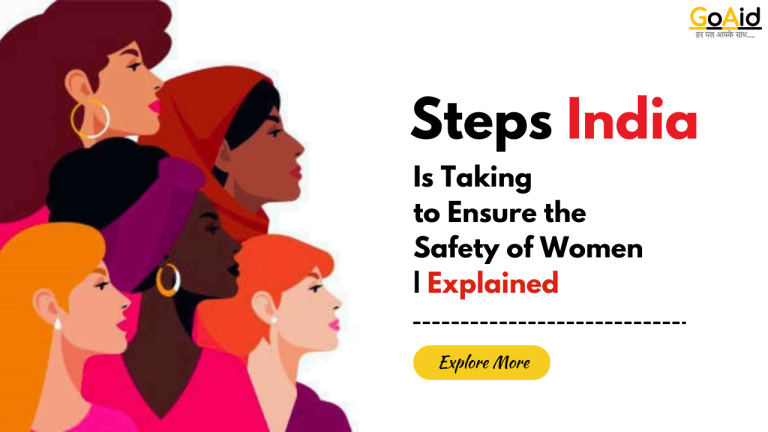Winter can be tough on your cardiovascular system, which increases the risk of heart attacks, high blood pressure, and other complications. This is why following heart care in winter guidelines is essential to staying healthy.
GoAid Heart Health Advice emphasizes adopting lifestyle adjustments, diet changes, and regular exercise to maintain a healthy heart in winter. By following these tips, you can protect your heart while enjoying the colder months safely.
Why Winter Increases the Risk of Heart Problems
Cold weather can strain the heart, as blood vessels constrict to maintain body temperature, raising blood pressure and increasing the risk of heart attacks. In winter, the heart works harder, especially for older adults and those with pre-existing conditions. Seasonal changes also encourage sedentary habits and unhealthy eating, which can worsen heart health.┬Ā
Winter heart health tips include dressing warmly, staying active, and monitoring blood pressure. Sudden exposure to cold, like stepping outside abruptly, can trigger cardiovascular stress. This is why following a winter heart care guide and taking cold-weather heart precautions is vital.
In emergencies,┬Ā you should rely on the GoAid Ambulance Service and 24/7 emergency ambulance services to ensure timely medical care.
Top Heart Health Tips for the Winter Season
Cold weather can put extra stress on your heart. Following simple heart care in winter strategies helps maintain cardiovascular health. These winter heart health tips from GoAid ensure your heart stays strong and protected.
- Dress Warmly: Keeping your body warm reduces strain on your heart. Wear layered clothing, gloves, and scarves to prevent sudden blood pressure spikes caused by cold exposure.
- Stay Active Indoors: Exercise indoors to maintain cardiovascular health. Simple routines like yoga, stretching, or treadmill walking help preserve heart health in winter.
- Monitor Blood Pressure Regularly: Cold temperatures can raise blood pressure. Frequent monitoring is essential for heart care in winter to prevent complications.
- Avoid Smoking and Alcohol: Smoking and excessive alcohol consumption worsen winter-related heart risks. Maintaining a healthy lifestyle is crucial for a healthy heart in winter.
- Manage Stress Levels: Stress can trigger heart problems. Practice meditation, deep breathing, or mindfulness exercises to protect your heart during cold weather.
- Stay Hydrated: Even in cold weather, dehydration can strain the heart. Drink enough water to support winter heart care and maintain healthy circulation.
Foods That Strengthen Your Heart in Cold Weather
Nutrition plays a key role in heart care in winter. Consuming heart-friendly foods helps maintain cardiovascular health, boosts immunity, and reduces the risk of winter heart problems. Follow these heart health tips for the winter season:
- Oats and Whole Grains: Rich in fiber, oats lower cholesterol and support a healthy heart in winter by improving blood circulation.
- Leafy Green Vegetables: Spinach, kale, and broccoli provide essential nutrients that strengthen the heart and reduce cardiovascular risk during cold months.
- Fatty Fish: Salmon, mackerel, and sardines are high in omega-3 fatty acids, promoting heart health in winter and lowering inflammation.
- Nuts and Seeds: Almonds, walnuts, flaxseeds, and chia seeds provide healthy fats that protect the heart and support cold-weather heart precautions.
- Citrus Fruits: Oranges, lemons, and grapefruits boost immunity and help maintain blood vessel health, enhancing heart care in winter.
- Dark Chocolate: Moderate dark chocolate consumption improves blood flow and supports winter heart health tips, while satisfying a sweet craving responsibly.
Exercises Safe for Your Heart During Winter
You should stay active in cold weather is crucial for heart care in winter. Safe indoor and outdoor exercises help maintain circulation, strengthen the heart, and reduce winter-related cardiovascular risks.
- Indoor Walking or Treadmill: Walking indoors or using a treadmill provides gentle cardiovascular exercise without exposing your heart to cold stress. This supports heart health tips for the winter season while maintaining stamina.
- Yoga and Stretching: Gentle yoga poses improve circulation, reduce stress, and strengthen the heart. Regular practice is an essential winter heart care guide for all age groups.
- Light Weight Training: Using light weights or resistance bands enhances heart efficiency and builds muscle safely. ItŌĆÖs an effective heart care in winter exercise for maintaining cardiovascular health.
- Aerobic and Dance Workouts: Indoor aerobic or dance sessions elevate heart rate safely, providing a fun way to follow essential tips for heart care during cold months.
- Stair Climbing Indoors: Climbing stairs at home strengthens the heart and improves circulation. This simple routine aligns with heart health tips for the winter season.
- Low-Impact Cardio Machines: Ellipticals, stationary bikes, or rowing machines offer controlled cardiovascular activity indoors, supporting a healthy heart in winter strategies without cold exposure.
Warning Signs of Heart Stress in Cold Months
Cold weather can increase cardiac strain, especially for those with existing conditions. Recognizing warning signs early allows prompt intervention and access to GoAid Ambulance Service, ensuring timely medical assistance when needed.
- Chest Pain or Discomfort: Persistent chest pain, tightness, or pressure may indicate winter-related heart stress. Seek immediate care from 24/7 emergency ambulance services if symptoms appear.
- Shortness of Breath: Difficulty breathing during mild activity or at rest can signal heart strain. Rapid response from GoAid Ambulance Service can prevent serious complications.
- Irregular Heartbeat: Palpitations or unusual heart rhythms in cold weather may indicate cardiovascular stress, requiring heart care in winter measures and professional evaluation.
- Fatigue and Weakness: Excessive tiredness despite normal activity can be a warning sign. Heart health tips for the winter season emphasize monitoring energy levels closely.
- Swelling in Legs or Ankles: Fluid retention or swelling may indicate heart strain. Prompt attention through GoAid Ambulance Service ensures early intervention.
- Dizziness or Fainting: Feeling lightheaded or fainting can signal serious cardiovascular stress. Immediate access to 24/7 emergency ambulance services is essential for safety.
Preventing Heart Attacks During Winter: Expert Advice
Cold weather increases the risk of heart attacks. Following expert heart care in winter tips can reduce strain on the heart and improve cardiovascular safety. These preventive strategies are essential for a healthy heart in winter.
- Avoid Sudden Exposure to Cold: Rapid temperature changes can stress the heart. Dress in layers and warm up gradually to follow cold-weather heart precautions effectively.
- Monitor Blood Pressure Regularly: Winter can elevate blood pressure, increasing heart attack risk. Frequent monitoring aligns with heart health tips for the winter season.
- Maintain a Healthy Diet: Consume heart-friendly foods rich in fiber, omega-3s, and antioxidants. A proper diet is essential for essential tips for heart care during winter.
- Stay Active Safely: Engage in indoor exercises like yoga or treadmill walking. Safe activity supports winter heart health tips without exposing the heart to cold stress.
- Manage Stress Levels: Stress can trigger cardiac events. Meditation, deep breathing, and relaxation techniques promote heart care in winter.
- Seek Immediate Medical Help if Symptoms Appear: Chest pain, dizziness, or shortness of breath require prompt attention. GoAid Ambulance Service offers 24/7 emergency ambulance services to prevent serious complications.
Role of GoAid in Promoting Heart Health Awareness
GoAid plays a vital role in improving cardiovascular awareness and emergency readiness in India. Through public campaigns and educational resources, GoAid Heart Health Advice emphasizes the importance of heart care in winter and teaches preventive measures to reduce cold-weather cardiac risks. Their team educates communities on recognizing warning signs of heart stress and encourages regular health checkups.
Why GoAid is the Best Ambulance Provider in India
In winter, quick medical assistance can save lives. GoAid Ambulance Service, known for its reliability, combines 24/7 emergency ambulance services with skilled paramedics, making it the best ambulance service provider in India for heart emergencies.
- Rapid Response Time: GoAid reaches your location promptly, ensuring timely assistance during heart emergencies. Quick response is vital for heart care in winter and emergency cardiovascular support.
- 24/7 Emergency Ambulance Services: Whether day or night, GoAid provides round-the-clock heart health tips for the winter season, guaranteeing medical support whenever required.
- Well-Equipped Ambulances: State-of-the-art ambulances include monitors, defibrillators, and life-saving equipment, supporting cold-weather heart precautions and expert cardiac care.
- Experienced Paramedics: Trained medical professionals accompany each vehicle, delivering expert care and guidance during emergencies, aligned with GoAid heart health advice.
- Nationwide Coverage: GoAid provides heart care in winter support across India, ensuring assistance is available even in remote areas.
- Patient-Focused Care: Safety, comfort, and compassion are prioritized in every emergency transfer, making GoAid the best ambulance service provider in India for cardiovascular emergencies.
Conclusion to Taking Care of the Heart in Winter
Cold weather increases heart risks, but following heart health tips for the winter season can prevent complications. Staying active, eating heart-friendly foods, and monitoring symptoms are essential. In emergencies, GoAid Ambulance Service offers 24/7 emergency ambulance services and expert care, making it the best ambulance service provider in India to protect your heart during winter.
FAQs Related to Taking Care of the Heart in Winter
Question-1: Why is heart care important during winter?
Answer: Cold weather increases blood pressure and heart strain. Following winter heart health tips and monitoring your heart reduces the risk of cardiovascular issues.
Question-2: What are the early signs of heart stress in winter?
Answer: Symptoms include chest pain, shortness of breath, fatigue, and irregular heartbeat. Recognizing them early allows prompt intervention using the GoAid Ambulance Service.
Question-3: How can I protect my heart in cold weather?
Answer: Dress warmly, stay active indoors, follow a heart-healthy diet, manage stress, and monitor blood pressure for effective heart care in winter.
Question 4: What foods strengthen the heart in winter?
Answer: Leafy greens, fatty fish, nuts, whole grains, citrus fruits, and moderate dark chocolate support the winter heart care guide and cardiovascular health.
Question-5: Are GoAid ambulances available for heart emergencies?
Answer: Yes, GoAid Ambulance Service offers 24/7 emergency ambulance services for cardiac emergencies across India, ensuring fast and reliable care.
Question-6: Can exercise be safe for the heart in winter?
Answer: Yes, indoor activities like yoga, treadmill walking, and low-impact cardio are safe exercises that promote heart health tips for the winter season.
Question 7: Why is GoAid considered the best ambulance provider in India?
Answer: GoAid combines fast response, skilled paramedics, well-equipped ambulances, and nationwide coverage, making it the best ambulance service provider in India for emergency heart care.

